Authentic mole sauce traditionally contains 7 core ingredients: ancho, mulato, and pasilla chilies; toasted nuts (almonds or sesame); whole spices; unsweetened chocolate; acidic elements; and broth. This complete guide reveals exactly what goes into genuine Mexican mole, why each component matters, and practical preparation methods for home cooks at any skill level - no culinary science degree required.
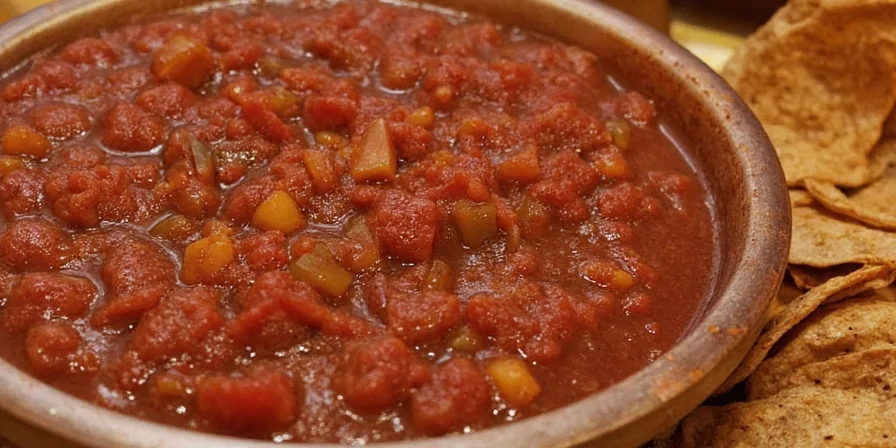
Forget confusing online recipes that list 30+ ingredients. Authentic mole relies on strategic ingredient pairings, not quantity. Whether you're making your first batch or refining your technique, this guide gives you the precise ingredient list trusted by Oaxacan chefs, plus practical substitutions when specialty items are hard to find.
What Are the Essential Mole Sauce Ingredients?
Traditional mole poblano uses these 7 foundational components in precise ratios. Keep this reference list handy while shopping:
- Dried chilies: 3-4 ancho, 2-3 mulato, 4-5 pasilla (yields 2 cups sauce)
- Nuts: 1/4 cup raw almonds or sesame seeds (toasted)
- Spices: 1 Ceylon cinnamon stick, 2 whole cloves, 1/4 tsp cumin seeds
- Chocolate: 1 oz (28g) Mexican tablet chocolate or 70% dark chocolate
- Acid: 2 roasted tomatillos or 1/4 cup broth-vinegar mix
- Liquid: 2 cups homemade chicken or vegetable broth
- Thickener: 1 stale corn tortilla (traditional) or 1/4 cup bread
Why These Ingredients Matter (Simplified Science)
Understanding each component's role prevents common mistakes without needing a chemistry degree:
Ancho Chili – The Sweet Foundation
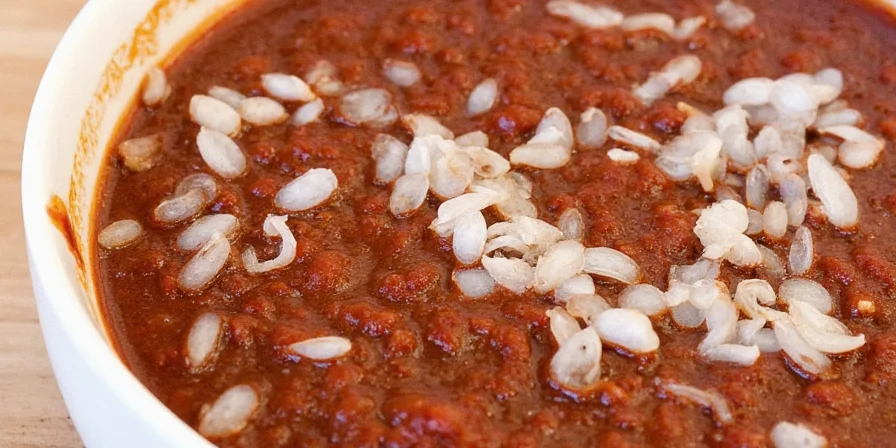 Dried poblanos provide mild heat (1,000-2,000 SHU) and raisin-like sweetness. Toast gently until fragrant - overheating creates bitterness. Soak in warm broth (not water) for 20 minutes before blending.
Dried poblanos provide mild heat (1,000-2,000 SHU) and raisin-like sweetness. Toast gently until fragrant - overheating creates bitterness. Soak in warm broth (not water) for 20 minutes before blending.
Mulato Chili – The Flavor Enhancer
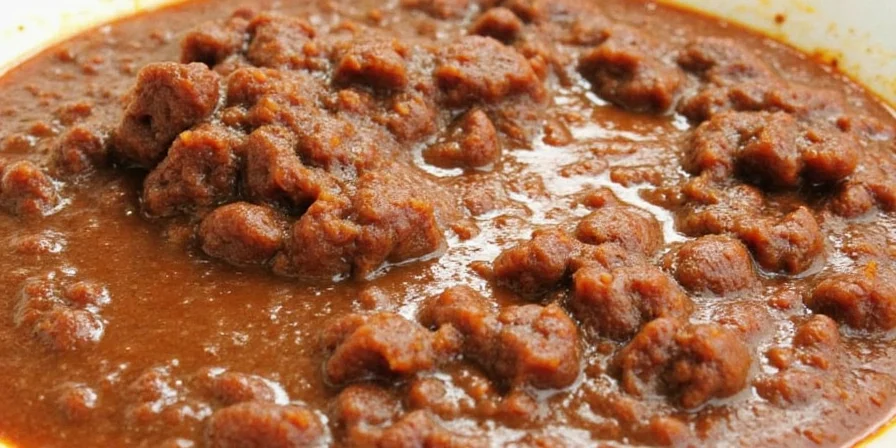 Slightly hotter (2,500 SHU) with deeper molasses notes. Its thicker skin creates mole's signature texture. Never skip this - it's the "secret weapon" in authentic recipes.
Slightly hotter (2,500 SHU) with deeper molasses notes. Its thicker skin creates mole's signature texture. Never skip this - it's the "secret weapon" in authentic recipes.
Pasilla Chile – The Earthy Complexity
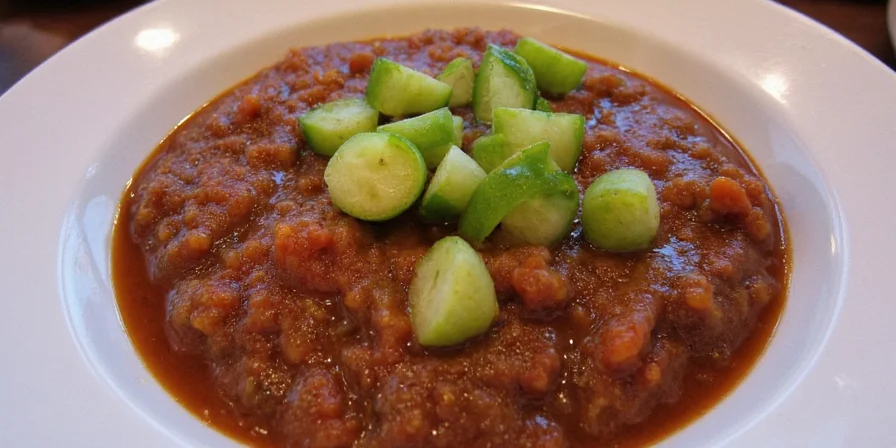 Adds herbal depth (1,000-2,500 SHU). Soak with other chilies but remove stems/seeds to control heat. Essential for that distinctive "fifth taste" umami.
Adds herbal depth (1,000-2,500 SHU). Soak with other chilies but remove stems/seeds to control heat. Essential for that distinctive "fifth taste" umami.
| Chili Type | Heat Level | Primary Flavor | Home Cook Tip |
|---|---|---|---|
| Ancho | Mild (1,500 SHU) | Fruity/sweet | Toast 90 seconds max |
| Mulato | Medium (2,500 SHU) | Molasses/chocolate | Keep skin on for texture |
| Pasilla | Medium (2,000 SHU) | Earthy/herbal | Remove seeds for mild version |
Practical Preparation Guide
Follow these beginner-friendly steps for authentic results:
- Prep chilies: Remove stems/seeds, toast 90 seconds per side at medium heat, soak 20 minutes in warm broth
- Dry roast: Toast spices and nuts separately until fragrant (cumin seeds crackle, almonds golden)
- Blend: Combine chilies, roasted ingredients, 1 cup broth, and chocolate in blender until smooth
- Simmer: Cook sauce 45 minutes on low heat, stirring occasionally, until thickened
Common Substitutions When Ingredients Are Hard to Find
Don't let unavailable ingredients stop you. These practical swaps maintain authenticity:
- No mulato chilies? Use guajillo (adds tang) + 1/4 tsp cocoa powder
- No Mexican chocolate? Mix 1 oz 70% dark chocolate + 1 tsp sugar + pinch cinnamon
- Nut allergy? Replace with 2 tbsp crushed corn tortillas for thickening
- Can't find pasilla? Double ancho quantity + 1 tsp dried oregano
| Mole Type | Signature Ingredients | Quick Identification |
|---|---|---|
| Mole Poblano | Chocolate + all 3 chilies | Deep reddish-brown color |
| Mole Verde | No chocolate, more herbs | Bright green color |
| Mole Negro | Charred chilies, more chocolate | Nearly black color |
Frequently Asked Questions
What's the simplest authentic mole ingredient list?
For basic mole poblano: 4 ancho, 2 mulato, and 3 pasilla chilies; 1/4 cup almonds; 1 cinnamon stick; 2 cloves; 1 oz Mexican chocolate; 2 tomatillos; 2 cups broth; and 1 stale corn tortilla. This 7-ingredient foundation creates authentic flavor without overwhelming complexity.
Can I make mole without chocolate?
Traditional mole poblano requires chocolate, but mole verde and coloradito don't use it. If avoiding chocolate, make mole verde with tomatillos, pumpkin seeds, and green chilies. For mole poblano substitutes, try 1 tsp cocoa powder + 1/2 tsp honey, though flavor won't be authentic.
What's the easiest store-bought shortcut?
Use Dona Maria mole paste as base (not full substitute). Dilute 1 cup paste with 1.5 cups broth, then add 2 toasted ancho chilies (soaked) and 1 oz dark chocolate. Simmer 30 minutes. This improves store-bought versions while maintaining authenticity better than using paste alone.
How do I fix bitter mole?
Bitterness usually comes from overheated chilies or improper chocolate. To fix: add 1 tsp honey or sugar, 2 tbsp broth, and a squeeze of fresh lime. Simmer 10 minutes. For prevention: never toast chilies above medium heat and use proper chocolate (not baking cocoa).
Storage and Serving Tips
Mole tastes best after flavors meld overnight. Cool completely, then store in airtight container:
- Refrigerator: Up to 5 days (flavor improves for first 48 hours)
- Freezer: 3 months in portion-sized containers
- Reheating: Warm gently on stove with splash of broth - never boil
Serve over turkey or chicken with rice, warm tortillas, and sesame seeds. Traditional pairing: Oaxacan black beans and warm tortillas.
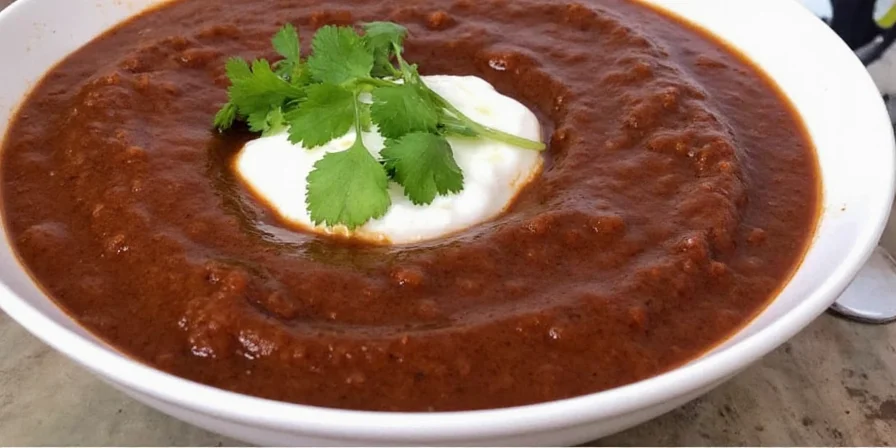
Mastering Authentic Mole: Key Takeaways
Authentic mole relies on just 7 essential ingredients used correctly, not dozens of hard-to-find items. Focus on proper chili preparation (toast gently, soak in broth), use real chocolate instead of cocoa, and allow proper simmering time. This approach creates complex, balanced flavor that impresses with minimal ingredients. Start with this simplified authentic method, then experiment with regional variations as your skills grow.

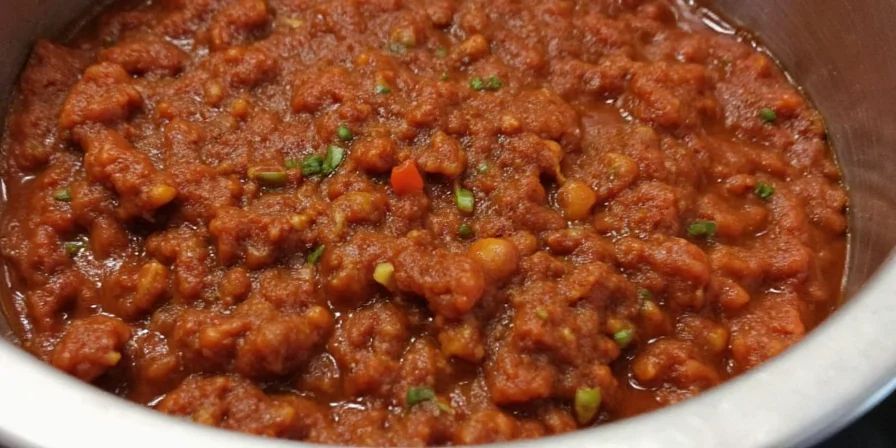









 浙公网安备
33010002000092号
浙公网安备
33010002000092号 浙B2-20120091-4
浙B2-20120091-4